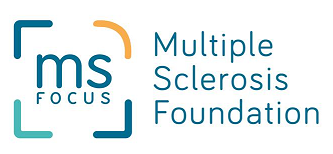I am writing this installment of my relapse diary a month after I left off the last time. I am now going into my second month on the multiple sclerosis (MS) drug Rebif (interferon beta-1a), I’ve been back in the gym for a full month, I’ve made adjustments to my meds, and I’ve entered some uncharted territory in taking control of this next chapter of my MS journey. Sit tight: This gets interesting!
Getting Started With Rebif
I was a bit leery about taking any MS medications, but I must say that not only have I been pleasantly surprised by Rebif — I’ve also been even more surprised by the care and compassion of the drug company service MS LifeLines and the nurse they sent to my home.
With Kendra, my wife, being an RN, it raises the bar pretty high on what we expect from nursing — and Jo-Ann Boswell came right up to that bar. I already understood how to administer Rebif using the autoinjector, but Jo-Ann still went through the procedure, educated me on the drug, and answered all of my questions. It was additionally nice that she knew who I was through my charity, MS Fitness Challenge, and had heard good things about Kendra and me from the local MS community. Her follow-up has been great as well.
The medication itself has been easy to administer, with no side effects at all. I know we all hear about the terrible, flu-like symptoms some people get from Rebif, but many of the people I know who take it are able to tolerate it well, as am I.
I look at taking Rebif as a preventive measure and not a miracle. And despite my original feeling that medication was not for me, it’s now one item on my checklist for the management of this disease that I can check off.
Tracking My MS Treatment
What with taking Rebif injections three times a week along with medications to regulate my hormones (something I’ve been doing since my MS diagnosis) — as well as my daily nutritional supplements — I knew I needed some form of tracking system that would remind me when to take all of these.
Relying on my MS memory, which we all know will fail us more often than not, was not an option!
So I found AppaGrapha, a free mobile app that allows you to input the medications or supplements you’re taking, reminds you when to take them, and tracks your history.
As leery as I am about medications, I am equally skeptical about technology that in most cases complicates our lives instead of simplifying them. But after downloading AppaGrapha, I found it easy to use, and it has a few unexpected features that I like. The app gives me a means of documenting how I am feeling each day — creating a kind of diary of how I am doing on my meds — plus it has a “resource” section that helps me find local and national resources related to various areas of wellness.
I’ve been using AppaGrapha for the last month, and it has not only helped me NOT miss one of my medications, but it’s also been helping me see how I’ve been improving through the “How am I feeling?” section. By logging my status on a scale of 1 to 10 at each dose, I have a graph that I can show my medical providers. My analytics of adherence and feeling scores become my journal and tell my story. Another item on the list checked off.
Low-Level Laser Therapy
Once I had my ducks in a row with meds and tracking them, the next item on my checklist was alternative treatments for MS. I had already gone through mesenchymal stem cell therapy and was disappointed by the short duration of symptom relief, so that was not an option. I hear of so many invasive and often risky forms of MS treatments (which I won’t mention), and I knew those directions weren’t an option for me either.
But there was one noninvasive treatment Kendra and I had heard about that we wanted to investigate further: low-level (cool) laser therapy. While I, the skeptic, dismissed it as smoke and mirrors, my RN wife did her due diligence, even attending a low-level laser seminar. And when she finished her research, we became the proud owners of an FDA-approved device.
After a major relapse that may have ended my bodybuilding for good, I was willing to try anything that had evidence of success in treating MS.
I have to report that after a month of Kendra’s using the laser on me, the feeling I had totally lost in my right hand up to my elbow has now returned, except for in the fingertips. What’s more, the feeling I had lost in my left hand, arm, and leg 11 years ago has started to slowly come back. I am now able to squeeze my left hand easily, move my left fingers to type, feel someone touching my arm, and coordinate my left leg considerably better than I have for years.
My change in function is so noticeable that members of my gym have come up to Kendra and told her how much better I’m walking, and many members who have MS are now doing the same low-level laser treatments. The results so far have been astounding: We are all moving our limbs more easily, regaining sensation, and feeling much better. Check that item off the list, too.
Getting Off Gabapentin
As I mentioned in my previous diary entry, I was also put on gabapentin, an anti-seizure medication, to help stop those annoying MS tremors. I want to take as little medication as possible, so my goal from the start was to get off this drug as quickly as I could, and I did that after the improvements from laser therapy. Check.
Bodybuilding Progress
The last entry on my MS management checklist was, of course, bodybuilding and getting back into training like a competitor. With everything else in place, and the amazing results the laser has given me, I was ready to defy the odds again. And that is exactly what I have been doing for the past month with my training partner, Josh.
My weights have steadily increased, as has the intensity of my workouts. Josh has noticed tremendous improvements in my coordination when lifting with my left arm and leg, and I am not too far behind him in many of the exercises. Simple movements like dumbbell flys, which were almost impossible before due to the lack of feeling and coordination on my left side, are now easier, and I am able to push much heavier weights. I feel like I am back on track in the gym once more. Check!
My Mantra: Never Quit!
I will continue to update everyone on my medication tolerance, improvements gained through laser therapy, and progress in the gym.
I am an advocate for a complete management program for MS and for any chronic condition. This includes your mental fitness along with the physical, and never eliminating possibilities for help offered by science, medicine, natural healing, or faith.
You choose your destiny, so never quit!
David Lyons’s new book, Everyday Health & Fitness with Multiple Sclerosis, co-authored with neurologist Jacob Sloane, MD, PhD, offers nutrition advice, a mental approach to fitness, and discussion of the mind-body connection.
Illustration: Gillian Blease/Getty Images; Shutterstock






